ASUS Xonar DGX and Xonar DSX Audio Cards Reviews
ASUS Xonar DSX
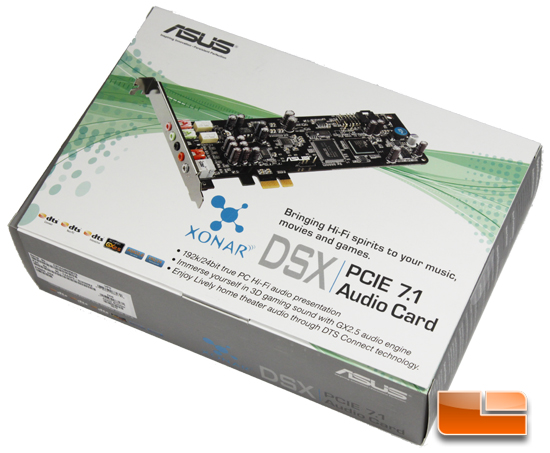
The DSX costs just $10 than the DGX and a number of specifications are scaled up. However unlike the DGX, this more expensive card lacks a headphone amplifier. Notable features of the Xonar DSX are DTS Connect for upmixing stereo channels to surround sound channels for home theater receivers, 192K/24 bit playback, and a swappable op-amp socket.
- GX2.5 for realistic 3D gaming audio effects
- DTS Connect technology for an immersive 7.1 surround experience
- 192k/24bit True PC Hi-Fi Enjoyment
- Swappable OPamp socket – Tune up your own sound with ease
- Auto-detect front-panel – best flexibility and connectivity
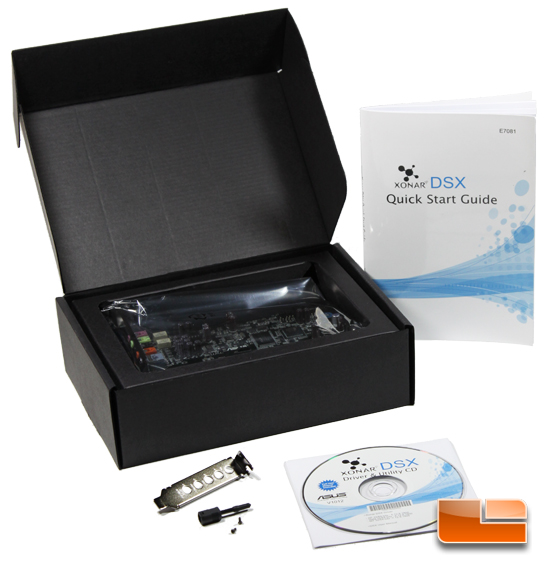
Included with the Xonar DSX comes with a low-profile bracket, screws for the replacement bracket, a cute screwdriver, a driver CD, and a multi-language quick start guide.
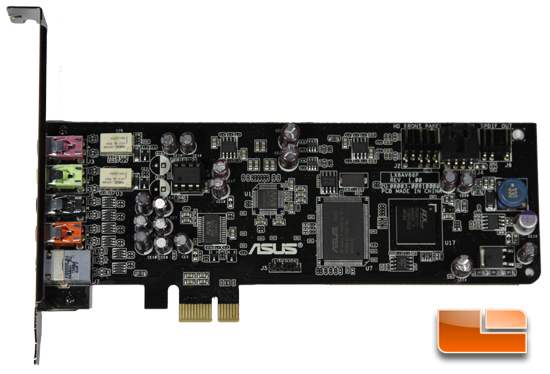
The DSX is a half-height card measuring 6.6 x 2.54 in (167.64 x 64.4 mm) and in all intents is roughly the same size as the DGX.
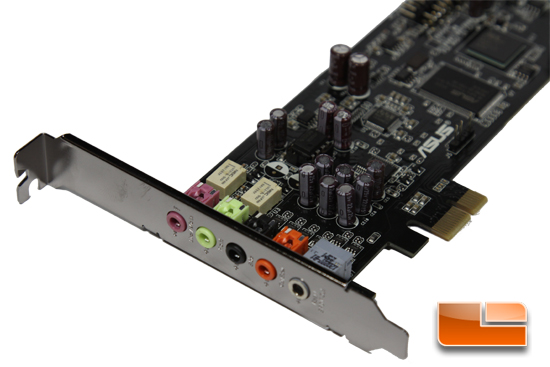
Unlike the DGX, the DSX can output 7.1 channel audio. In keeping with the cards half-height size, one of the 3.5 mm analog output jacks is combod with the S/PDIF and optical TOSLINK output. Also visible on the card are four pins for aux-in.
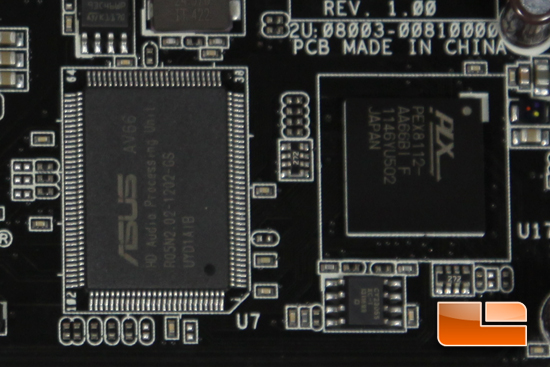
Like its PCI predecessor the Xonar DS, the Xonar DSX has the same ASUS AV66 audio processor, which is actually a rebranded C-Media Oxygen CMI8788 audio processor. Like the DGX, a PLX PEX8112 bridge chip is used to permit PCI-E compatibility with the PCI native C-Media audio processor.
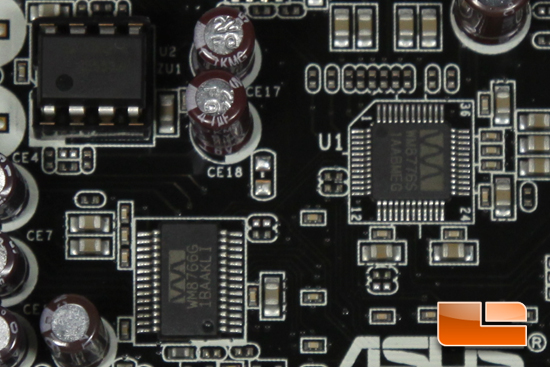
In this detail photograph, the swappable Texas Instruments NE55329 op amp can be seen to the top left. Along the bottom is a Wolfson WM8766G digital-to-analog converter and to the right is a Wolfson WM8766S analog-to-digital converter.

Comments are closed.